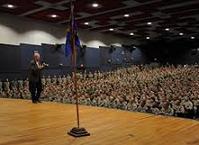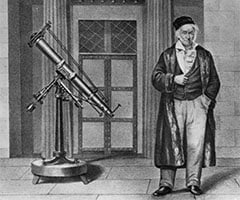 According to the dictionary of the Royal Spanish Academy ( RAE ), the term disquisition derives from the Latin word disquisitio and has two meanings. The first refers to an exhaustive analysis carried out on something, studying its various components or parts in detail.
According to the dictionary of the Royal Spanish Academy ( RAE ), the term disquisition derives from the Latin word disquisitio and has two meanings. The first refers to an exhaustive analysis carried out on something, studying its various components or parts in detail.
For example: “In his new essay , the Spanish author carried out a profound discussion about the human condition,” “The discussion of profitability is key in any productive project,” “The coach embarked on a discussion of statistics.” of the last year to try to discover which aspects the team must improve most urgently.”
“Arithmetic Disquisitions” (or “Disquisitiones arithmeticae” ), for its part, is the title of a book published by the German mathematician, physicist and astronomer Carl Friedrich Gauss (1777-1855). In this work, the author investigates different number theories proposed by other specialists and incorporates various of his own discoveries.
With respect to Gauss , it is important to note that he was a scientist whose knowledge covered mathematics, astronomy and physics, among other fields, and his contributions were truly considerable to the study of statistics, algebra, differential geometry, optics, mathematical analysis and number theory. In fact, within mathematics he is one of the figures that has had the greatest influence in history.
The book about the disquisitions was published in 1801, although more versions were published later. Some of the mathematicians specialized in the field of number theory whose results Gauss compiled in this work are Euler, Fermat, Legendre and Lagrange , four figures of great recognition to experts in the field.
In addition to his discoveries about elementary number theory, Gauss included in the book some concepts that are currently part of algebraic number theory . In its pages, however, there is no explicit recognition of the group as a concept, despite the fact that today it is a fundamental part of algebra . In the preface he described the focus of the work, where he established that it would deal with integers and, to a lesser extent, fractions, but not irrational numbers.
 The seven sections into which the book “Arithmetic Disquisitions” is divided are the following, according to the topics they address: congruent numbers in general; 1st degree congruences; residues of powers; 2nd degree congruences; indeterminate equations and 2nd degree forms; fields of application of everything stated above; sections of circles and the equations to define them. Gauss wrote one more section, but it was only published after his death.
The seven sections into which the book “Arithmetic Disquisitions” is divided are the following, according to the topics they address: congruent numbers in general; 1st degree congruences; residues of powers; 2nd degree congruences; indeterminate equations and 2nd degree forms; fields of application of everything stated above; sections of circles and the equations to define them. Gauss wrote one more section, but it was only published after his death.
The idea of disquisition, on the other hand, can refer to a rambling or rambling , according to the second meaning mentioned by the RAE . In these cases, the disquisitions consist of speeches that move away from the main issue or theme to which reference was being made, or that are developed without a specific purpose: “Let's not waste any more time on disquisitions and get to the point,” “If If you allow me the discussion, I would like to tell you how I met Dr. Frollometti more than twenty years ago,” “After a brief methodological discussion, the scientist began to develop his theory before an audience that listened to him with great attention.”
Although this word is not in everyday use, it has several synonyms that do appear in popular language. Through them we can delve a little deeper into the meaning of disquisition : reasoning, reflection, research and commentary . As may occur with other terms of a similar nature, disquisition does not have a direct antonym, since in any case we could talk about the "lack of disquisition" or "research", for example.
